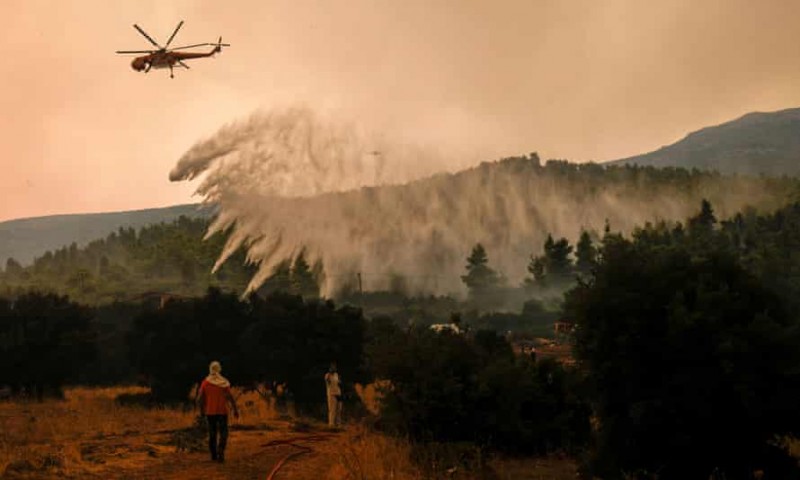
Spurred on by this summer’s record temperatures, Greek scientists have begun discussing the need to name and rank heat waves, better known for their invisibility, before rampant wildfires made the realities of the climate crisis increasingly stark. A preventative measure, the move would enable policymakers and affected populations to be more prepared for what are being described by experts as “silent killers.” Greece has experienced two bouts of extreme heat since June, both unusually prolonged and intense, with the second wave lasting almost three weeks. A new rise in temperatures last week saw Athens once again fall victim to peri-urban fires, with devastating blazes breaking out north-west of the capital.
Dr Kostas Lagouvardos, research director at the National Observatory of Athens, told the Observer it is clear the extreme heat has been underestimated. “This very hot summer has given us a snapshot of a future climate in 20 or 30 years’ time when we’re likely to have very long periods of very high temperatures,” he said. “It’s extreme behaviour but it could become the norm. Unlike other adverse weather events, you can’t see extreme heat.”
It was essential, he insisted, that both state authorities and citizens were aware of the dangers. “We believe people will be more prepared to face an upcoming weather event when the event has a name,” he said. “They’ll become more aware of the possible problems it could cause to their lives and to their properties … heatwaves cause a lot of deaths; they don’t make noise and they may not be visible but they’re a silent killer.”
World Sanskrit Day 2021: PM Modi greets nation in Sanskrit
Relief Measures: Mexico sends second shipment of 20-ton aid to Haiti
In fight against COVID, Portugal continues to cautiously ease lockdown measures